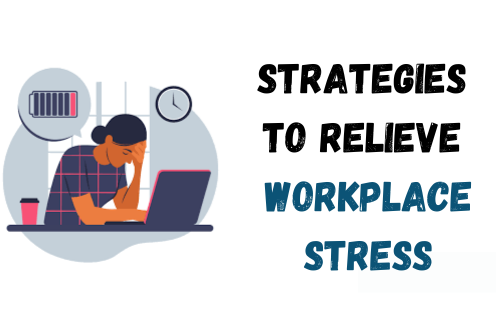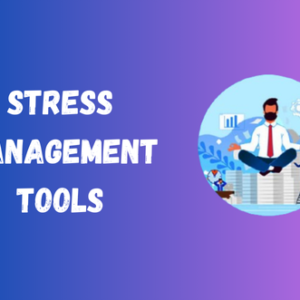Stress in the workplace is a common challenge faced by professionals across industries. The pressures of meeting deadlines, handling demanding tasks, and maintaining a work-life balance can take a toll on mental and physical health. However, understanding how to manage and mitigate workplace stress is essential for fostering productivity and overall well-being. In this article, we will explore practical strategies to help you navigate and relieve stress at work.
Understanding Workplace Stress
Workplace stress arises when job demands exceed an individual’s ability to cope. It may stem from factors such as:
- High workloads: Tight deadlines and unrealistic expectations can create pressure.
- Lack of control: Feeling powerless in decision-making can contribute to frustration.
- Interpersonal conflicts: Tensions with colleagues or supervisors can escalate stress levels.
- Job insecurity: Concerns about stability or future prospects add to anxiety.
Recognizing the sources of your stress is the first step in addressing it effectively.
Strategies to Relieve Workplace Stress

1. Prioritize and Organize
Time management is a cornerstone of stress relief. Use tools like planners or digital calendars to schedule tasks and allocate time effectively. Break larger projects into smaller, manageable steps to avoid feeling overwhelmed. Prioritize tasks based on urgency and importance to maintain focus.
2. Set Boundaries
Work-life boundaries are crucial for mental health. Avoid checking emails or taking work calls outside of office hours. Communicate these boundaries clearly with your colleagues and supervisors to foster mutual understanding.
3. Practice Mindfulness and Relaxation Techniques
Incorporating mindfulness practices, such as meditation and deep breathing exercises, can help you stay grounded. Taking short breaks throughout the day to stretch or breathe deeply can reduce tension and improve focus.
4. Foster Healthy Workplace Relationships
Building positive relationships with coworkers creates a supportive environment. Engage in team-building activities, offer assistance when needed, and maintain open communication to resolve conflicts constructively.
5. Seek Professional Development
Stress often arises from feeling unprepared or lacking certain skills. Invest in professional development opportunities to build confidence in your role. Attending workshops, taking courses, or seeking mentorship can empower you to tackle challenges more effectively.
6. Utilize Support Systems
Don’t hesitate to seek help when needed. Talk to trusted colleagues, friends, or family members about your concerns. If your organization offers employee assistance programs (EAPs), take advantage of counseling or stress management resources.
7. Maintain a Healthy Lifestyle
Your physical health significantly impacts your ability to manage stress. Aim for:
- Regular exercise: Physical activity reduces stress hormones and boosts endorphins.
- Balanced diet: Nutritious meals sustain energy levels and support mental clarity.
- Adequate sleep: Quality rest restores your body and mind, improving resilience.
8. Focus on What You Can Control
Stress often stems from worrying about factors beyond your control. Redirect your energy toward actionable solutions and accept that some situations may be outside your influence.
The Role of Employers in Stress Management
Employers also play a vital role in mitigating workplace stress. Organizations can:
- Promote open communication: Encourage employees to voice concerns without fear of judgment.
- Provide resources: Offer access to wellness programs, mental health services, and flexible work arrangements.
- Foster a positive culture: Recognize achievements, celebrate milestones, and create an inclusive atmosphere.
Conclusion
Workplace stress is an inevitable part of professional life, but it doesn’t have to define your experience. By implementing effective strategies like prioritizing tasks, setting boundaries, practicing mindfulness, and seeking support, you can reduce stress and improve your overall well-being. Remember, managing stress is a continuous process that requires self-awareness and proactive effort. Taking control of workplace stress will not only enhance your productivity but also contribute to a healthier and more fulfilling career.











